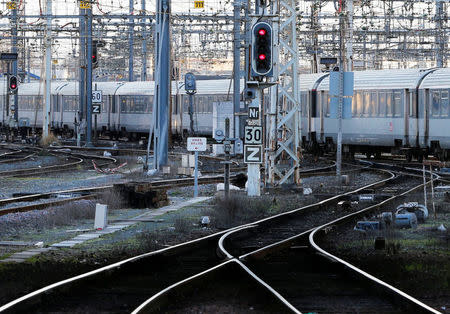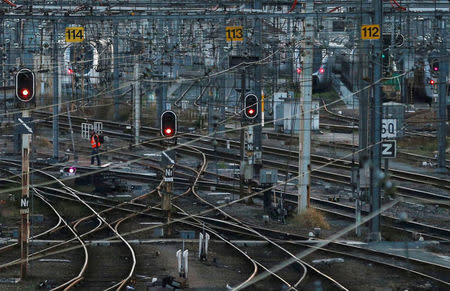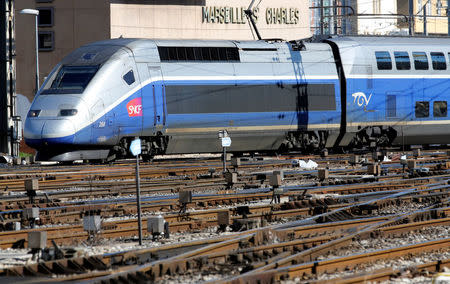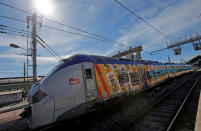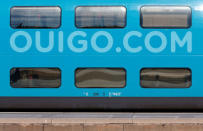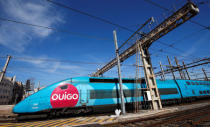A Thatcher moment? France's Macron squares off with rail unions
By Brian Love PARIS (Reuters) - The last time a French president squared off against rail unions over workers' benefits it ended badly. The strikes of 1995 paralyzed Paris and forced prime minister Alain Juppe to pull the reforms, a defeat from which he failed to recover. Emmanuel Macron is undeterred. On Wednesday his government endorsed a bill to fast-track through parliament the biggest shake-up of France's debt-ridden railways since they were nationalized in 1930s. The former investment banker's penchant for reform-by-decree after talks -- he adopted the same approach over labor reforms last summer -- has angered labor unions, who will decide on Thursday if they will resort to strikes. "It's like putting a pistol to our heads and saying: 'Let's talk'," Philippe Martinez, leader of the CGT union, said. Elected on a promise to transform France and backed by a commanding majority in parliament, Macron has tackled at a relentless pace issues long considered sacred cows: protective labor laws, the bloated public sector, schools and now the state-run SNCF railways. French unions are weaker and more divided than in 1995 and public support for strikes is less ardent than it once was. And while the unions have threatened action over his plans to transform the SNCF into a profit-maker and prepare it for foreign competition in 2020, Macron has the public on his side. One recent poll showed two in every three French people backed contracts for rail workers that would no longer guarantee a job for life and early retirement. Laurent Berger, head of the moderate CFDT, France's largest union, told Europe 1 radio: "Either we chose confrontation between a camp in favor of the status quo versus the camp of 'we start from scratch' or we chose the path of negotiation and we find a way forward." CHANGING TIMES Rail workers have threatened to strike on March 22, the same day that several public sector unions plan a walkout. The weeks ahead will be a test of their support, after they failed to mobilize nationwide protests to alter the government's course on making it easier to hire and fire workers. There appears a recognition among some unionists that they may struggle to garner momentum. "Beyond the SNCF, there doesn't seem to be a mass desire to take to the streets," Jean-Claude Mailly, leader of the Force Ouvriere union, told France Inter radio. In 2010, then-president Nicolas Sarkozy took on the unions over pension reform. At the time there were predictions of a 1995-redux. Millions took to the streets but Sarkozy stood firm and the reform happened. As with Sarkozy at that time, Macron's intent to take on unions has drawn comparisons with Margaret Thatcher, the British prime minister who challenged mining unions in the 1980s. She won and unions in Britain never recovered their might. "Both Macron and Thatcher were inspired by the same desire for reform and belief that it was the key to economic recovery," Remi Bourguignon, a labor relations specialist at the Sorbonne Business School in Paris, told Reuters. "It is not implausible either that they share the view of intermediary bodies (unions) more as hurdles than as stepping stones - that they saw their ability to bypass them as a measure of political courage." (Reporting by Brian Love, with additional reporting by Caroline Pailliez; Editing by Richard Lough and Robin Pomeroy)




